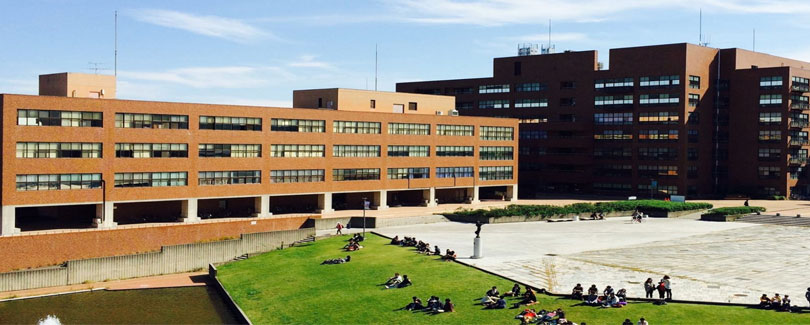University of Tsukuba

Study abroad expert advice
Don't waste time! just fill the form to get help.
University of Tsukuba
The University of Tsukuba , located in Tsukuba, Ibaraki, is one of the prestigious national universities (established by Japanese Government). The university has 28 college clusters and schools with around 16,500 students (as of 2014).The main Tsukuba campus covers an area of 258 hectares (636 acres), making it the second largest single campus in Japan. The branch campus is in Bunkyo-ku, Tokyo, which offers graduate programs for working adults in the capital and manages K-12 schools in Tokyo that are attached to the university.
The university's academic strength is in STEMM fields (Science, Technology, Engineering, Mathematics, Medicine), physical education, and related interdisciplinary fields. It is by taking located in Tsukuba Science City which has more than 300 research institutions. The university has had three Nobel laureates (two in Physics and one in Chemistry, see also "History"), and about 70 athletes, their students and alumni, have participated in the Olympic Games
It has established interdisciplinary Ph.D. programs in Human Biology and Empowerment Informatics, and the International Institute for Integrative Sleep Medicine, which were created through the Ministry of Education, Culture, Sports, Science and Technology's competitive funding projects.
Its Graduate School of Life and Environmental Sciences is represented on the national Coordinating Committee for Earthquake Prediction
University Facts:
- Website : www.tsukuba.ac.jp/english
- QS Ranking : #=265
- Times Ranking : #401-500
- Contact : +81 29-853-2111
-
Country :
 Japan
Japan
University Information:
- Address : 1-1-1 Tennodai Tsukuba, Japan
- Contact Mobile : +81 29-853-2111
- Email : N/A
Study abroad World Ranking

- #401-500 Times Higher Education Ranking
- #=265 QS World Ranking

University of Tsukuba
University of Tsukuba is one of the leading universities in Azerbaijan.

